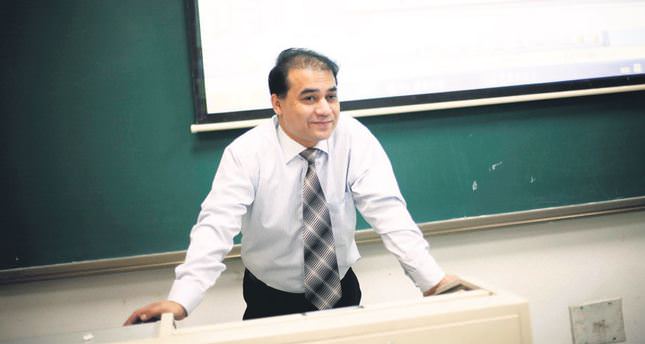Sakarov Prize Winner in Solitary Confinement, Denied Family Visits
HRW, September 23, 2024
(New York) – The Chinese government should quash the conviction and release Ilham Tohti, the prominent Uyghur economist and government critic, on the 10th anniversary of his sentencing, Human Rights Watch said today.
In 2014, the Xinjiang People’s High Court convicted Professor Tohti on politically motivated charges of “separatism” and sentenced him to life in prison. His family has not been allowed to visit him since early 2017 and he is believed to have been in solitary confinement since his arrest.
“The life sentence for Ilham Tohti marked the beginning of the Chinese government’s severe crackdown on the Uyghur region in 2014,” said Maya Wang, associate China director at Human Rights Watch. “Tohti’s life imprisonment for his peaceful criticism and torturous solitary confinement reflects the Chinese government’s heightened repression and relentless abuses against Uyghurs.”
Tohti, 54, was teaching at Central University of Nationalities of China when he established “Uighurs Online,” a website aimed “to provide Uyghurs and Hans with a platform for discussion and exchange” in late 2005. The Chinese government shut down the website in 2008 and sentenced the manager, Gheyret Niyaz, now 65, to 15 years in prison in 2010 for “endangering state security.”
At least six of Tohti’s students, Abduqeyum Ablimit, Perhat Halmurat, Akbar Imin, Mutellip Imin, Shohret Nijat, and Atikem Rozi, are believed to have been sentenced to between three-and-a-half and eight years in prison in 2014, based on a document leaked to Xinjiang Victims Database. It is unclear whether they were released when their sentences ended.
In May 2014, the Chinese government launched the “Strike Hard Campaign against Violent Terrorism” in Xinjiang. Since late 2016, the Chinese authorities have dramatically increased its repression in the region, targeting Uyghurs and other Turkic Muslims living there with policies that amount to crimes against humanity.
They include mass and arbitrary detention, unjust prolonged imprisonment, forced labor, family separation, violation of reproductive rights, torture, and the use of transnational repression. In 2022, the Office of the United Nations High Commissioner for Human Rights issued a report concluding that these abuses “may constitute … crimes against humanity.”
Tohti was awarded the European Parliament Sakharov Prize for Freedom of Thought in 2019. On the 10th anniversary of Tohti’s imprisonment, the European Union issued a statement calling for “the immediate and unconditional release of Tohti and other human rights defenders, lawyers, and intellectuals who are arbitrarily detained in China.”
The Chinese government’s harsh crackdown on Uyghurs includes the mass detention and imprisonment of intellectuals, the backbone of Uyghur culture and society. They are among more than half-a-million Uyghurs who were sentenced between 2017 and 2021 to prison terms without due process. Among them are the retired physician Gulshan Abbas, sentenced to 20 years in prison, the prominent anthropologist Rahile Dawut, sentenced to life, the writer and literary critic Yalqun Rozi, 15 years, and the literature professor Abduqadir Jalalidin, 13 years.
The authorities continue to detain and imprison Uyghurs on vague charges, though precise information is limited due to the severe government control of information in the region. On September 19, Radio Free Asia reported that Tohti’s prison guard, Ghopur Abdurreshit, 51, was sentenced to seven years in prison for disclosing information related to Tohti’s health.
“Foreign governments should counter the Chinese government’s false claim that there are no abuses in Xinjiang by demanding the release of Ilham Tohti and the hundreds of thousands of other Uyghurs and other Turkic Muslims who remain arbitrarily imprisoned,” Wang said. “The UN Human Rights office should promptly issue a comprehensive update on the current situation in Xinjiang and present an action plan to hold the Chinese government accountable.”

